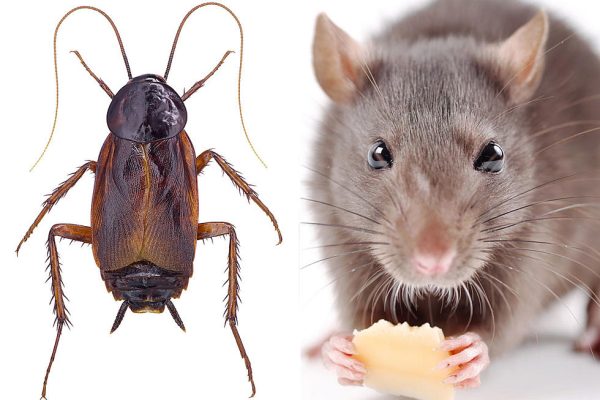Most of us can’t think of a day without sugar. Whether it is about making tea, coffee, juice, etc., sugar plays the main role in many dishes. Thanks to its sweetness, it adds to everything. Some of us may like to offer this flavour to our dogs. But can dogs have sugar?
Unfortunately, sugar is a bad substitute for dogs and all mammals. It can be worse for them if taken in large amounts. It doesn’t mean that you can’t offer them sugary fruits and vegetables. The sugar present in blueberries, apples, mangoes, etc. can be safe for them in moderation.
Can Dogs Have Sugar?
Dogs can have sugar, but that’s not recommended. However, the sugar present in fruits, veggies, and other plant-based foods can be fine for dogs to some extent.
Usually, we add sugar to juice, tea, coffee, etc. These white granules are not good for dogs. Perhaps your dog can escape the side effects of a tiny amount of sugar, especially if he is a large breed. However, you can offer him fruits, like strawberries, apples, blueberries, etc., as a form of healthy sugar.
Are All Types Of Sugar Bad For Dogs?
We can’t say dogs should avoid sugar completely because they also need carbs like us. It is the amount that decides whether sugar is healthy for them or not.

Sugar is not only present in the white molecules we see; it is also present in fruits and vegetables. Now let’s discover different types of sugar that may or may not suit a dog’s health.
Fructose
Fructose is the sweetest sugar found in some fruits and vegetables. Manufacturers process fructose, which gives potent products like corn syrup. Dogs may consume fructose in small amounts.
Sucrose
Sucrose is another type of sugar present in plant-based foods. This can be safe for dogs in minimal quantities.
Glucose
Like fructose and sucrose, glucose is present in some fruits and vegetables. Mammals can produce this sugar naturally in their bodies. Dogs can have this sugar by maintaining some precautions.
Lactose
Lactose is another type of sugar present in milk and dairy products. Since most dogs are lactose-intolerant, lactose may not be safe for them.
Galactose
Galactose is a sugar compound present in lactose. Few amounts of it may not harm our paw friends.
Maltose
Maltose, also known as malt, is present in germinated grains and honey. Dogs can have it in small amounts.
Other types of sugar include brown sugar, processed sugar, powdered sugar, and cane sugar. These are all non-toxic compounds, but they can be toxic if taken in large amounts.
What Are The Risks Of Having Sugar For Dogs?
Having sugar in a limited quantity may not pose health threats to our canine friends. Since they are curious beings, they may keep eating sugar more than necessary. In that case, the risks can be adverse.
Taking high amounts of sugar will increase the fat content of any being. Meanwhile, too much fat inflames dogs’ pancreas. This means dogs can get pancreatitis from eating sugar. Fats are also responsible for increasing weight, resulting in obesity. Besides, small or large amounts of sugar can be harmful to a diabetic dog. It is because sugar causes a spike in blood sugar levels.
Disaccharides like lactose, maltose, and sucrose take a long time to digest. If your dog takes them too much, the severity of reactions from eating sugar will be higher.
Whether it is monosaccharide sugar or disaccharide sugar, they all pose a risk of tooth decay. They can lead to gum inflammation and tooth enamel.
Can Dogs Have Artificial Sweeteners?
Generally, vets restrict offering sugar to dogs. That’s why most of us think of offering sugar-free products to them. The products labelled as sugar-free have artificial sweeteners, named xylitol, instead of sugar. This sweetener is ten times more harmful than sugar for mammals. Taking it in small or moderate quantities can result in vomiting, diarrhoea, stomach pain, etc. Meanwhile, large amounts of xylitol can be the reason for xylitol poisoning. In that case, the symptoms can be seizures, lethargy, loss of coordination, loss of appetite, drooling, weakness, etc.
How Much Sugar Is Bad For Dogs?
Since sugar is not a toxic compound, dogs can have it in tiny amounts. According to veterinarians, dogs can enjoy other treats that makeup 10% of their daily calorie intake. Whether it is a sugary fruit, sugary vegetable, or sugar itself, the quantity should be within 10% of the dog’s calorie intake.

Besides, the amount of sugar that is going to be fine is not the same for all dogs. For example, a Yorkie eats 1 teaspoon of sugar, and a German Shepherd also eats 1 teaspoon of sugar. Or you can say a Yorkie eats one whole sugary fruit, like an apple, and the German Shepherd also eats one whole apple. You will see the German Shepherd is acting fine with no abnormal reactions. Meanwhile, the Yorkie is throwing up after a certain time.
Large breeds have large bodies, so they can adapt to more foods. Small breeds have small bodies, so they can adapt to less food. It means you must offer less sugar or less sugary fruit to your small dog, and keep the amount moderate for large dogs.
Alternatives Of Sugar For Dogs
Don’t worry if your dog doesn’t fit into the position of eating sugar, even in small amounts. You can choose an alternative that can take the place of sugar and offer nutrients at the same time.
Honey
Raw honey or Manuka honey will not only offer sweetness but also antioxidant, antifungal, and antifungal properties. This means allergic dogs will have no side effects from consuming it.
Blackstrap Molasses
Blackstrap molasses is a natural sweetener. They come from the crystallisation of the sugar’s sucrose. These molasses contain potassium, calcium, iron, selenium, manganese, etc.
Maple Syrup
Maple syrup is a sweetener that has manganese and zinc. The best part is that maple syrup has fewer calories than any other sweetener. Besides, it has quebecol, an anti-inflammatory property. This will prevent dogs from experiencing inflammation and boost their immune systems.
Frequently Asked Questions: Can Dogs Have Sugar?
Can all pets eat sugar?
Sugar is a non-toxic ingredient, yet it is not recommended for pets or mammals. It can be bad for them as it raises their blood sugar level. However, sugar present in fruits and vegetables can be safe for them in small amounts.
What happens if a dog takes too much sugar?
Taking sugar in high amounts will first increase the blood sugar level in dogs. Then it will increase their fat, leading to weight gain and obesity. Initially, the symptoms will be vomiting, gas, diarrhoea, bloating, etc.
Can dogs have sugar sometimes?
Dogs who are not diabetic, obese, or overweight can have sugar in small quantities sometimes. But if you feed it to them daily, they will gain weight and have other health issues.
Are sweet products, like candy and gum, safe for dogs?
Most candies and gums are full of sugar. You may think that a small amount of sugar may not harm dogs, so sugary products won’t. But that’s not true. They have more ingredients, along with sugar, so eating them can cause more adverse reactions in dogs.
Final Thoughts
We all know sugar is a bad addition to our diets, especially in high amounts. That’s why we wonder, Can dogs have sugar? The answer is no if it is the white granules. The answer is yes if it is the sugar from sweet fruits.
Dogs who are struggling with blood sugar levels should avoid sweet fruits completely because sugar is a threat to them in every way.
If you ever see your paw friend eat too much sugar, inform his vet immediately. Also, monitor his symptoms and offer him some water to calm down.





